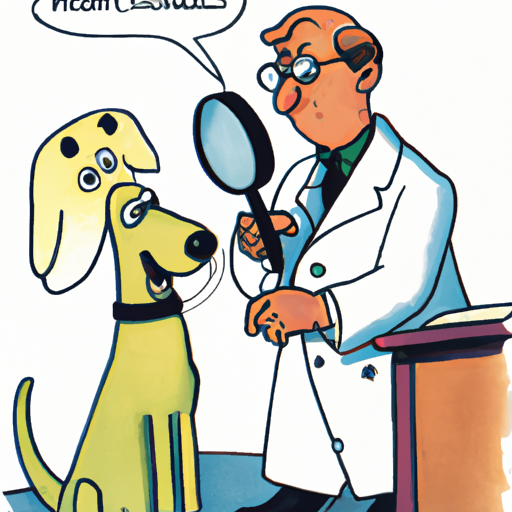“`markdown
Why Do They Say Dogs’ Mouths Are Cleaner Than Humans?
Understanding the Claim
You’ve probably heard the old adage: “A dog’s mouth is cleaner than a human’s.” But is there any scientific truth to this? As a caregiver, your first instinct might be to question this widely-held belief. After all, dogs have a penchant for sniffing and tasting all sorts of unsavory things, so how could their mouths possibly be cleaner?
This claim has been around for years, and it’s worth exploring its origin and validity. This piece is not just about debunking myths, but also about fostering a deeper understanding of your furry friend and his health.
The Science Behind Dog Saliva
Dog saliva, or ‘dog spit’ as it’s more affectionately known, is indeed fascinating. Some studies suggest that dog saliva can have antibacterial properties. But, it’s essential to note that the bacteria found in dog’s mouths are significantly different from those found in human mouths.
- Dog Saliva Contains Lysozyme: An enzyme that breaks down the cell walls of certain bacteria, potentially reducing their numbers.
- Dog Saliva Has Proteins: Such as lactoferrin and defensins, which can have antimicrobial properties.
While this sounds promising, it doesn’t necessarily mean a dog’s mouth is ‘cleaner.’ It’s just different.
Comparing Bacteria: Dogs vs. Humans
The difference in oral bacteria between dogs and humans is stark. Here’s a simplified comparison:
| Dogs | Humans | |
|---|---|---|
| Bacteria | Over 600 types | Over 600 types |
| Commonality | Less than 16% shared | Over 70% shared |
Just because dogs have different bacteria doesn’t mean their mouths are cleaner. It just means that some bacteria, harmful to humans, might not survive well in a dog’s mouth.
Exploring the Health Implications
The question isn’t whether a dog’s mouth is cleaner, but rather, what are the health implications? While it’s unlikely to catch a disease from sharing a kiss with your dog, it’s still crucial to maintain their oral hygiene for their health and wellbeing. Regular brushing of your dog’s teeth can help prevent gum disease and other oral health problems.
The Cultural Perspective
The “cleaner” claim might also stem from cultural beliefs. For instance, some cultures believe that dog saliva has healing properties, hence the dog’s mouth being labeled as “cleaner.” However, these beliefs are not rooted in scientific evidence but rather in tradition and folklore.
FAQ
1. Can I get sick from my dog’s saliva?
Generally, the risk is minimal. However, if your dog has a bacterial infection, there is a risk of transmission.
2. Are there any diseases that can be transmitted from dogs to humans?
Yes, there are zoonotic diseases, like rabies, that can be transmitted from dogs to humans. However, these are extremely rare, especially if your dog is vaccinated.
3. How can I maintain my dog’s oral health?
Regular brushing, dental chews, and professional cleanings can help maintain your dog’s oral health.
4. Is it okay to let my dog lick my face?
While it’s generally safe, it’s better to avoid it, especially if the dog is new and its health status is unknown.
5. Should I be worried if my dog has bad breath?
Bad breath can indicate dental problems in dogs. If you notice a persistently foul smell, it’s best to consult a vet.
“`



